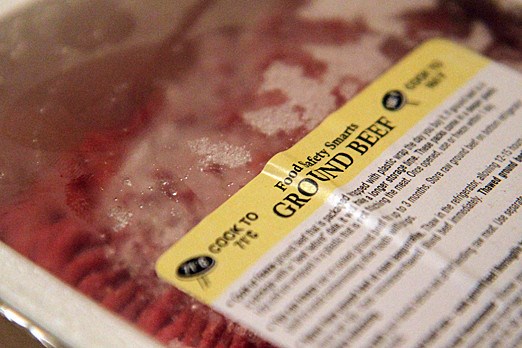Meat from animals raised in this region appear to be E. coli free.
A massive contamination recently caused the largest recall of consumer meat in Canadian history. The E.coli was first detected at the XL Foods Inc. plant in Alberta on Sept.4. But despite this massive recall, local producers have seen little to no impact on their products.
David Stezenko, co-owner of Quality Market, said when they heard about the recall they immediately got rid of any of the meat listed on the Canadian Food Inspection Agency’s website, but overall the recall had little impact.
“We do carry meat from the west, but we also carry some local meat,” Stezenko said. “We’ve had some customers asking. They asked if we had any of the products affected and we said no. The recall has had very little impact.”
The company carries certified grass-fed beef that comes from Emo and that product makes up about 20 per cent of the Quality Market’s beef sales.
Stezenko said they make sure their beef is safe by working closely with both the supplier and trade association so if there is any kind of issue they know right away.
“I know the national media are making a huge deal of this but on the ground here in Thunder Bay there’s not the same kind of thought that you’re seeing on TV,” he said.
Rob Walsh, a local farmer with Northern Unique Catering, said local meats are typically much safer than beef that is shipped in from abroad because farmers like himself raise the animals, feed them and then taken them to slaughter.
Many farmers like Walsh will even take their meats directly to the market where they expect to face consumer scrutiny and are asked questions about their product.
Walsh raises wild boar and has about 140 animals. He said he anticipates an increase in business because of the massive recall and hopes people will use this as an educational experience on where they get their meat.
“This recall is a perfect example of globalizing food and if everything is going well then it’s OK, but as soon as something bad happens we’re in real big trouble,” he said. “People want to know where their food is coming from. How they are raised, what they’re fed.”
The trend to get meat closer to home isn't unique to northwestern Ontario. Walsh said he’s also selling to restaurants in southern Ontario.
Walsh said even if something were to go wrong it would never reach the same kind of level and affect as many people as the XL recall.
For more information about recalled meats, visit this website.
